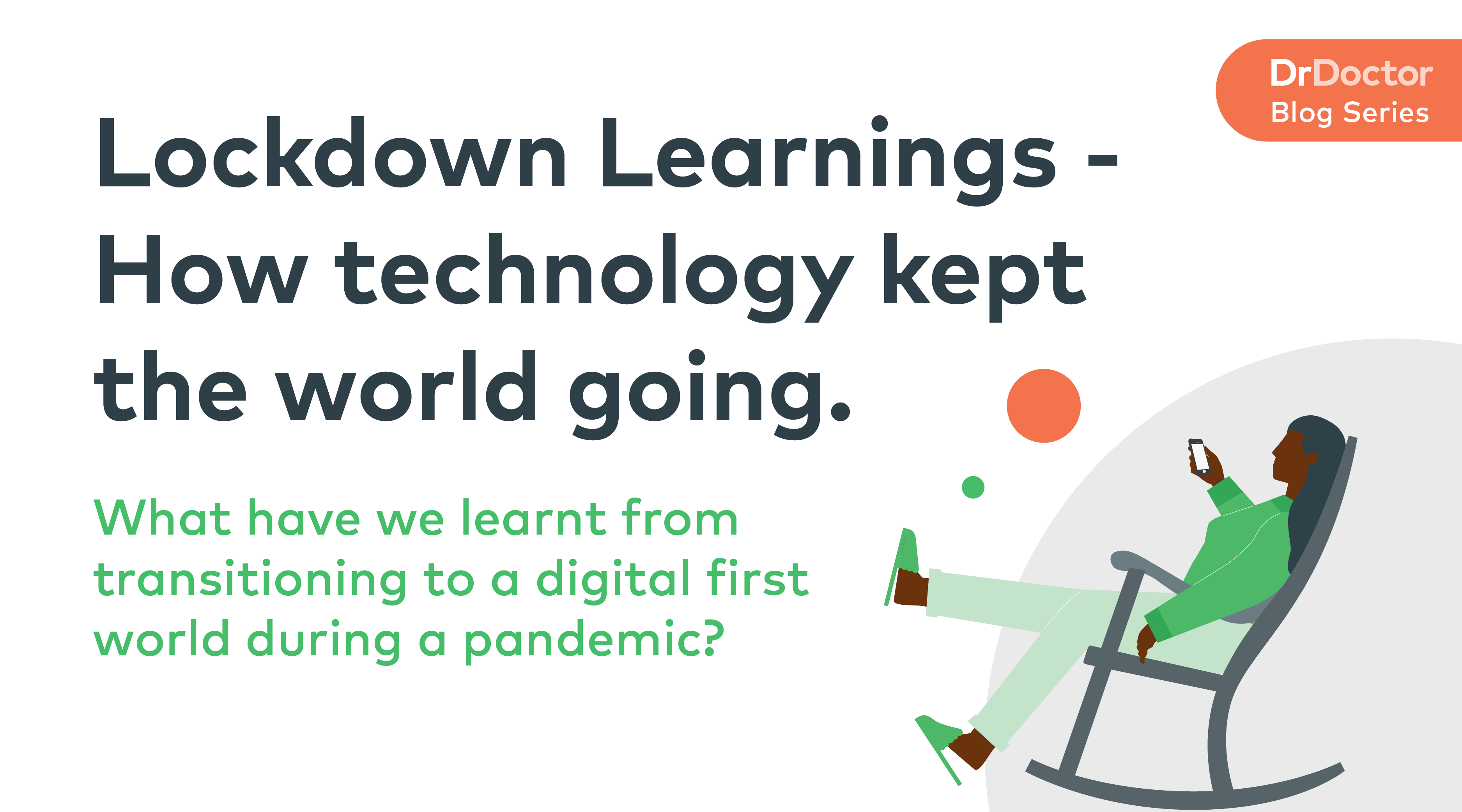Lockdown Learnings - How technology kept the world going
Topics: Industry insights

We recently commemorated the one year anniversary since the UK entered its first lockdown due to the coronavirus pandemic. During this unprecedented time (how many emails did you receive with that sentence in!?) we overcame some of our most testing challenges to date, whether it be globally, nationally, from businesses to our own personal lives. So what have we learnt from it?
If we look at the inherent human needs, at the core of it all is connection. It is as strong a need as food, water and warmth. In 2020, we globally turned to technology in more ways than ever before to feel connected and engaged with our friends, families, colleagues, nature, and even our daily routines. Technology gave our lives a sense of normality, as we transitioned to a digital world.
Let’s take a look at some of the usual daily connections that were replaced with technology:
- Footfall businesses relied solely on online customer engagement
- Formal events became webinars
- Workplace meetings, friends’ birthday parties, even schooling, Zoom hosted it all
- Gym classes and skills workshops became YouTube videos
We have become accustomed to using this technology to stay engaged in our day to day lives, so now it’s time to fully embrace this technology when it comes to our healthcare.
Digitisation of the NHS is not exactly a new topic of discussion, but it is one that is often met with scepticism. The fact of the matter is, the NHS can use technology to engage patients and activate them in their own care, the same way we have all used it to engage with people in the last year.
Picture this, a system where you can use your phone to book a hospital appointment at a time and day that suits you, in the exact same way you would pick a slot for your hair appointment (finally!), or a restaurant reservation. Well, with the DrDoctor Patient Engagement Platform that solution exists.
What about all the ASOS deliveries (just me?) or that webinar on cooking Thai food you’ve signed up to. Chances are, you’ve probably received text notifications reminding you of your booking or delivery, that you possibly might have forgotten about otherwise. Receiving a text message from your hospital reminding you of your appointment could be the difference between becoming a DNA and unintentionally wasting valuable hospital time and money. And guess what, that also exists within our patient layer.
We have most likely all spent more hours on video calls in this last year than we have face to face. Take my own personal experience as an example. During the second lockdown in September, I joined DrDoctor, but the only real interaction I’ve had with my new colleagues over the last nine months is over Zoom. However, I have still integrated into the company, built relationships across the business, and performed highly in my job.
If I were to think of the benefits of this new way of working, there’s one that really sticks out, other than being able to stay in bed that little bit longer! No more early morning, expensive train commutes sandwiched between other commuters, or being stuck in traffic during rush hour. We know it works. So now imagine not having to travel to hospital for an appointment, try to find a parking space, pay extortionate amounts for that parking space, and then sit in a waiting room for an hour, all for a 10 minute appointment. Video consultations with your consultant can be just as, if not more, effective without the hassle and anxiety. And yep you got it, we’ve got them covered too.
These are just a few of the doors opened when you begin transforming the NHS to a digital-first model. The DrDoctor Patient Engagement Platform has a suite of tools that deliver a digital healthcare system that meets demand without sacrificing quality. By virtually activating patients in their own care journey, you keep them engaged every step of the way.
It is time to embrace digital healthcare with the same mental attitude and outlook as we did embracing our new way of living during the pandemic. Our healthcare is deeply personal, but patient engagement can reap the same benefits as people engagement when done right.